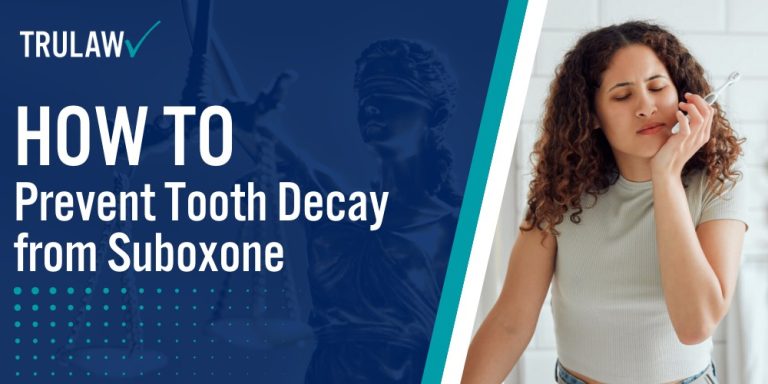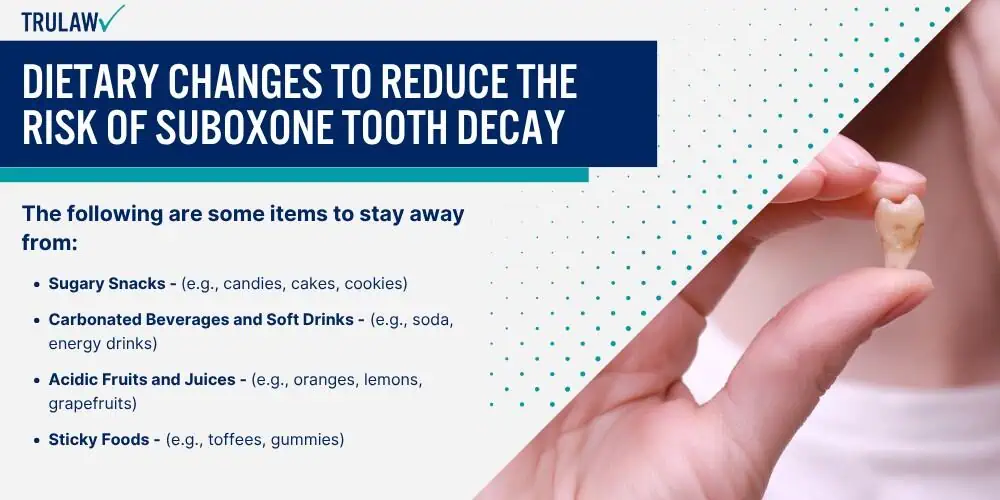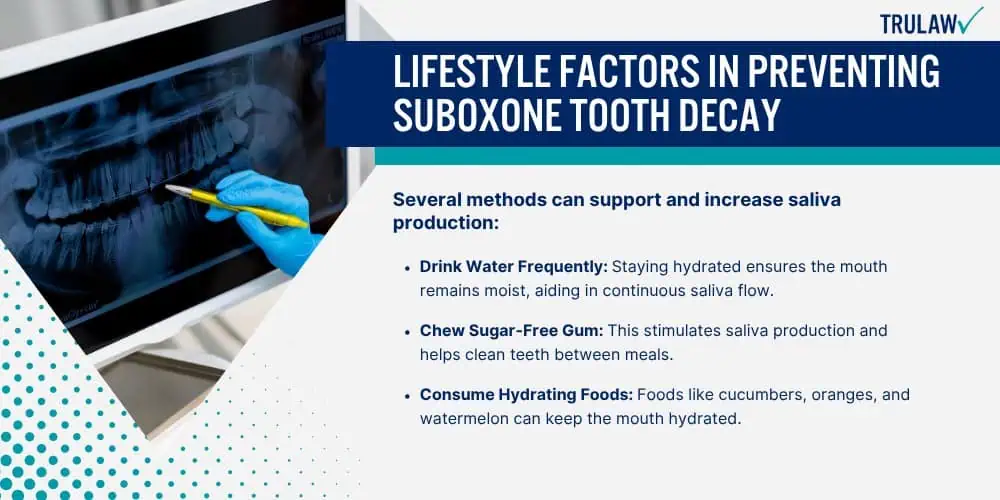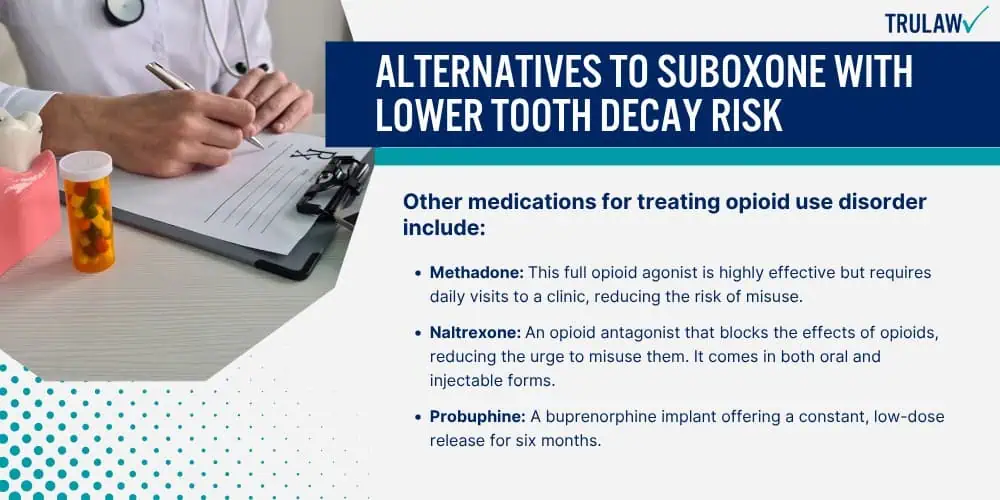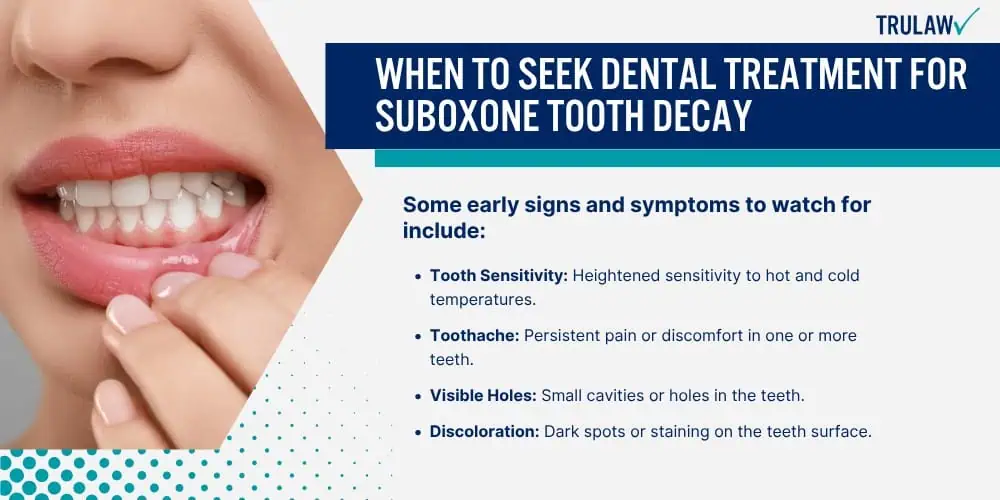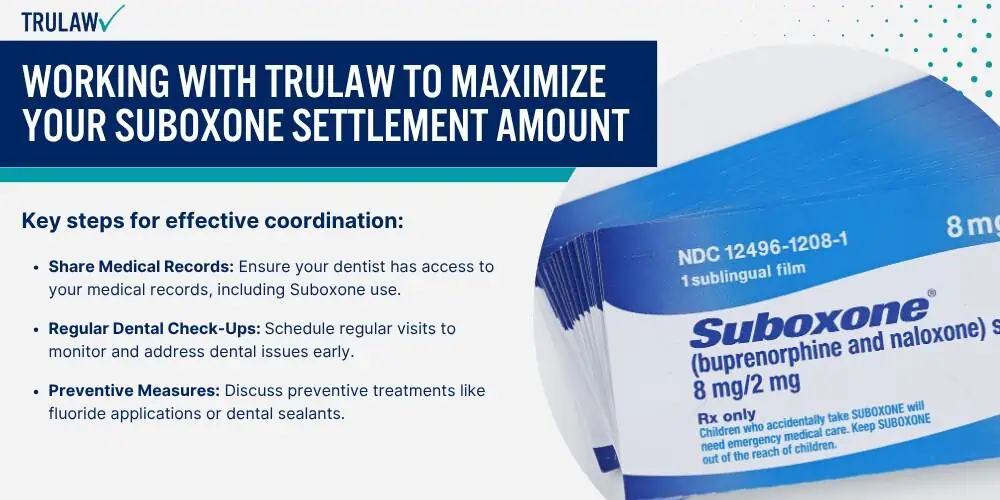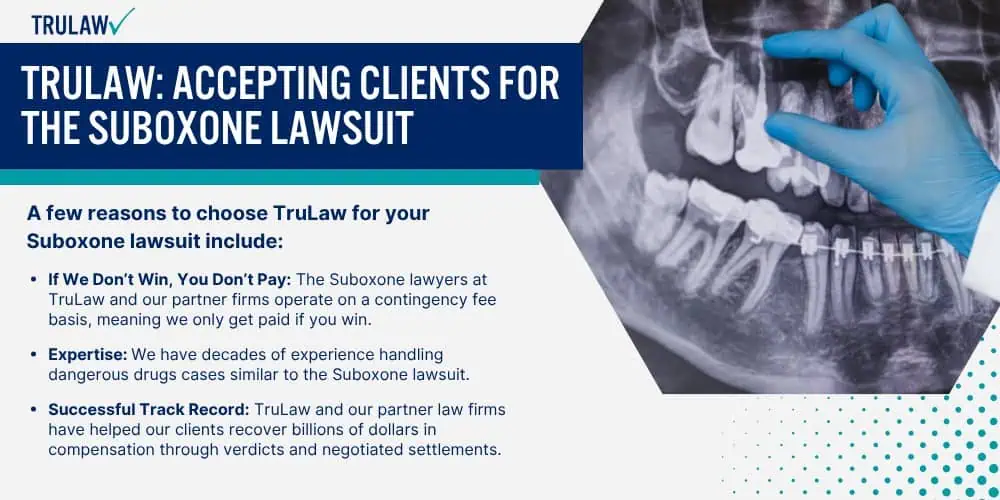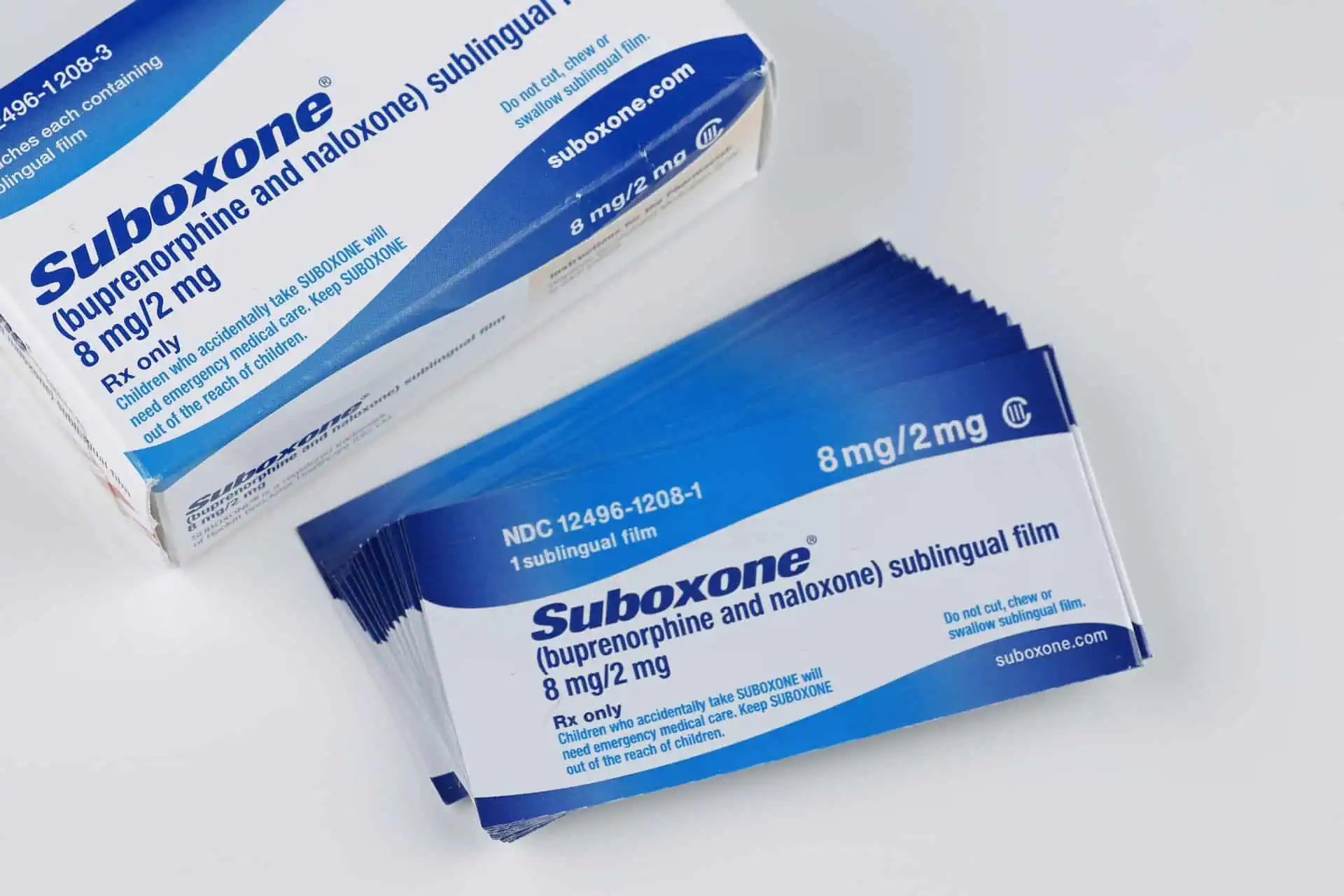Suboxone, a buprenorphine medicine, has been linked to various dental problems such as tooth decay, cavities, and oral infections.
These issues can arise even in individuals with no prior dental history.
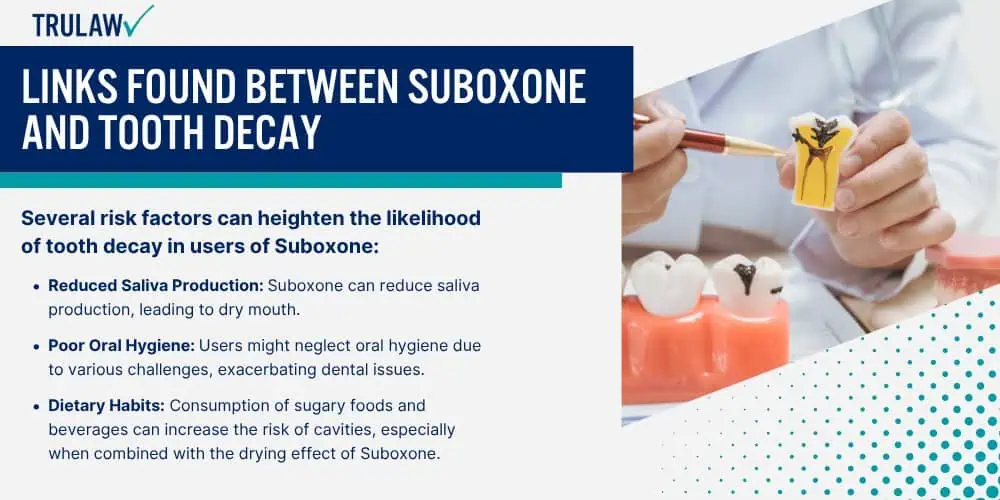
Risk Factors That Increase Likelihood of Tooth Decay
Research has identified multiple factors contributing to an elevated risk of tooth decay in Suboxone users.
These factors can significantly impact oral health.
Several risk factors can heighten the likelihood of tooth decay in users of Suboxone:
- Reduced Saliva Production: Suboxone can reduce saliva production, leading to dry mouth. Saliva is essential for neutralizing acids and washing away food particles.
- Poor Oral Hygiene: Users might neglect oral hygiene due to various challenges, exacerbating dental issues.
- Dietary Habits: Consumption of sugary foods and beverages can increase the risk of cavities, especially when combined with the drying effect of Suboxone.
- Medical Conditions: Pre-existing conditions such as diabetes can compromise oral health, making it more likely to develop dental problems.
- Frequency of Medication Use: Frequent use of Suboxone can continuously expose the teeth to conditions that favor decay.
High-risk behaviors related to diet and oral care need special attention for those on Suboxone therapy.
How Suboxone Affects Oral Health and Tooth Enamel
Studies have shown that Suboxone impacts oral health through various mechanisms, leading to potential damage to tooth enamel and overall dental health.
Mechanisms by which Suboxone impacts oral health and tooth enamel include:
- Dry Mouth: One significant impact of Suboxone is its ability to cause dry mouth, which indirectly harms the teeth by reducing protective saliva.
- Acid Production: The decrease in saliva allows acids to remain on the teeth longer, increasing the risk of enamel erosion and decay.
- Plaque Build-Up: Without adequate saliva, plaque and bacteria accumulate more easily, leading to potential cavities and gum disease.
- Direct Contact: Suboxone, often taken sublingually (under the tongue), can lead to prolonged contact between the medication and teeth, potentially harming the enamel directly.
Regular dental check-ups and enhanced oral hygiene practices are critical for individuals on Suboxone to mitigate these risks.
For more detailed information on how buprenorphine can cause these issues, consider checking the FDA’s warnings.
Importance of Good Oral Hygiene While Taking Suboxone
Maintaining good oral hygiene is essential when using Suboxone, as it can significantly reduce the risk of dental problems such as tooth decay and oral infections.
Implementing proper brushing and flossing techniques and using recommended oral care products will help maintain dental health.
Brushing and Flossing Techniques to Prevent Tooth Decay
Proper brushing and flossing techniques are critical for preventing tooth decay from Suboxone.
According to the U.S. Substance Abuse and Mental Health Services Administration (SAMHSA) Suboxone users should use a soft-bristled toothbrush to avoid damaging the enamel.
They should brush their teeth at least twice a day, ideally after meals, to remove plaque and food particles.
Paying special attention to the gum line, the back teeth, and areas around any dental work is also important.
Use the following tips for effective brushing:
- Use a fluoride toothpaste to strengthen enamel.
- Brush for at least two minutes, covering all tooth surfaces.
- Replace the toothbrush or head every three months to ensure efficiency.
- Brush gently in circular motions to avoid abrasion.
Flossing should be done at least once a day.
It removes food particles and plaque from areas between the teeth that brushing alone can’t reach.
Using a dental floss that is gentle yet effective is preferable.
For those with sensitivity, waxed floss can make the process smoother.
Recommended Oral Care Products for Suboxone Users
Choosing the right oral care products can significantly benefit Suboxone users aiming to maintain their dental health.
Products that are gentle on the teeth but effective at fighting cavities and tooth decay are highly recommended.
Recommended products include:
- Fluoride toothpaste to help remineralize enamel and reduce decay.
- Alcohol-free mouthwash to avoid dry mouth, which can exacerbate severe dental issues.
- Sugar-free gum stimulates saliva production and helps neutralize acid in the mouth.
- Soft-bristled toothbrushes to prevent enamel erosion.
- Electric toothbrushes for thorough cleaning with less effort.
An effective oral care routine featuring these products can significantly mitigate the risks associated with buprenorphine-naloxone use.
Regular dental check-ups are also crucial to catch and manage any emerging issues promptly.
